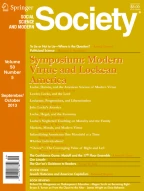Abstract
The social function of humor may be considered to have two aspects. The first is that of the relationships within a group and the social system within which personal acquaintance and interaction between and among group members exist. The second is that of society as a whole or of social phenomena. Here, humor’s role being to reform certain aspects of social life. Bergson’s theory deals mainly with this “corrective” characteristic of humor. In this article, both of these aspects are discussed.
Similar content being viewed by others
Further Reading
Apte, M. 1985. Humor and laughter: An anthropological approach. Ithaca, NY: Cornell University Press.
Lax, E. 1975. On being funny: Woody Allen and comedy. New York: Charterhouse.
Lefcourt, H. M., & Martin, R. A. 1986. Humor and life stress: Antidote to adversity. New York: Springer Verlag.
Veatch, T. C. 1998. A theory of humor. London: Walter de Gruyere.
Ziv, A., & Zeidman, A. (Eds.). 1988. National styles of humor. New York: Greenwood.
Author information
Authors and Affiliations
Corresponding author
Rights and permissions
About this article
Cite this article
Ziv, A. The Social Function of Humor in Interpersonal Relationships. Soc 47, 11–18 (2010). https://doi.org/10.1007/s12115-009-9283-9
Published:
Issue Date:
DOI: https://doi.org/10.1007/s12115-009-9283-9
